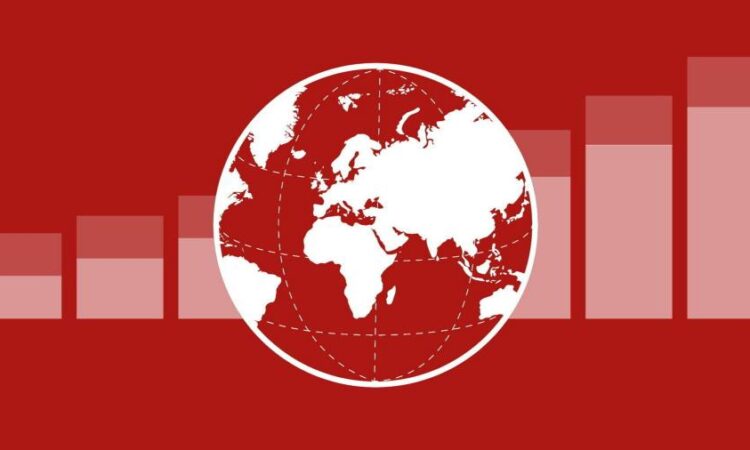
European equities rose in morning trade on Monday, led by financial stocks such as Deutsche Bank, as investors grew more reassured over the health of the banking industry.
The region-wide Stoxx 600 rose 1.1 per cent, Germany’s Dax rose 1.3 per cent, France’s Cac 40 added 1.2 per cent and the UK’s FTSE 100 gained 0.9 per cent.
Futures contracts tracking the blue-chip S&P 500 rose 0.6 per cent, while those following the tech-heavy Nasdaq were up 0.4 per cent.
After sustaining heavy losses in the previous session, banking stocks saw gains, with the Stoxx 600 banks index, which comprises the region’s biggest lenders, rising 1.5 per cent.
Deutsche, which lost 8.5 per cent on Friday, added 5.9 per cent. The bank’s slide came after its five-year credit default swaps climbed to 200 basis points last Friday as investors bet on which bank might be next to encounter difficulties after the failure of Credit Suisse. Deutsche’s CDS was marginally higher on Monday, quoted at 205bp.
In the US, ailing regional lender First Republic’s shares increased 25 per cent in pre-market trading, in the wake of reports that regulators were considering expanding an emergency lending facility for banks. On Sunday, regulators confirmed First Citizens Bank would buy much of the collapsed Silicon Valley Bank, although it would lead to $20bn of losses for a deposit insurance fund paid for by US banks.
JPMorgan was up 1.6 per cent, Citigroup 2.1 per cent and Wells Fargo 1.9 per cent.
“The recovery could reflect investors having a few days to reassess and decide things aren’t as bad as they seemed. There were all sorts of stories at the weekend saying Deutsche Bank is nowhere near as risky [as Credit Suisse], but it’s too early to tell and we have to see how things shake out,” said Jack Allen-Reynolds, deputy chief eurozone economist at Capital Economics.
Despite concerns that their rate-raising agendas might dent financial stability, central banks on both sides of the Atlantic centred the fight against inflation by increasing interest rates last week.
Economists are betting that the US Federal Reserve will pause its rate-raising cycle at its next meeting in May before cutting in September, while expecting a 0.25 percentage point increase from the European Central Bank and no cuts in 2023.
“Ideally, central banks would separate the issues, using different tools to deal with macroeconomic issues versus financial stability, but they know an interaction exists. So, they are watching developments in the banking sector to see if continued rate hikes have an outsized or non-linear effect on financial conditions. To date, their conclusion has been ‘no’,” said Morgan Stanley’s global chief economist Seth Carpenter.
On Friday, data from the personal consumption expenditures price index, the Fed’s preferred inflation gauge will be released, along with consumer price index data for the eurozone.
Later on Monday, Fed Board of Governors member Philip Jefferson and the ECB’s Isabel Schnabel will give their first public remarks since the start of the banking crisis.
Stocks fell in Asia after Chinese industrial profits were much weaker than expected, slumping by 22.9 per cent, after factory activity struggled to recover from the country’s prolonged shutdown owing to Covid-19. The CSI 300 fell 0.4 per cent and the Hang Seng index lost 1.8 per cent.
In government debt markets, yields on two-year US Treasuries — which are most sensitive to interest rates — rose 0.2 percentage points to 3.95 per cent and yields on 10-year notes rose 0.09 percentage points to 3.47 per cent.
Yields on two-year German Bunds rose 0.1 percentage points to 2.5 per cent, while 10-year contracts rose 0.1 percentage points to 2.23 per cent.
Brent crude rose 1.7 per cent to $76.25 and West Texas Intermediate, the US equivalent, increased by 1.9 per cent to $70.57.






